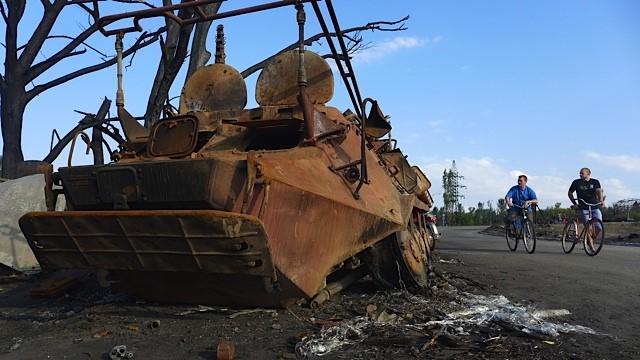Ukraine crisis: Rebels declare early poll date
- Published
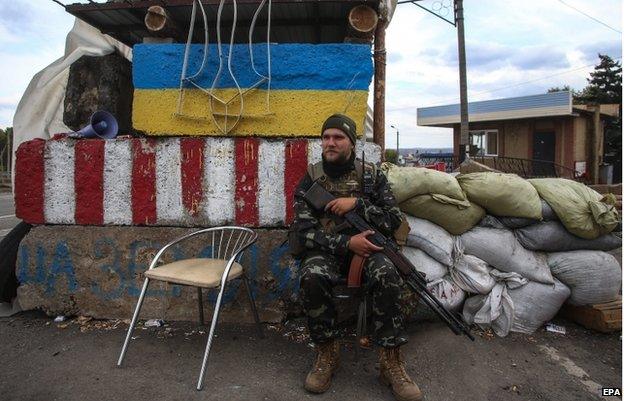
A fragile ceasefire has largely held in eastern Ukraine, and rebels say they have begun pulling back their big guns
Rebel leaders in eastern Ukraine say they will hold elections on 2 November, in an apparent show of defiance towards the government in Kiev.
Although Ukraine is holding parliamentary polls a week before, it has offered the pro-Russian rebels a vote on self-rule in December.
A shaky ceasefire has held since 5 September and the two sides have since agreed to set up a buffer zone.
UN officials say 3,245 people have been killed since fighting began in April.
That number does not include the 298 victims of the Malaysia Airlines plane downed over eastern Ukraine on 17 July.
Separatists in the eastern regions of Donetsk and Luhansk declared independence from Ukrainian rule after Russia annexed Crimea in March.
The rebels seized several cities and fighting raged for five months, with Russia denying accusations that it had sent soldiers and weapons to push back the Ukrainian army.
Despite frequent flare-ups in the violence, the fragile ceasefire agreed early this month appears to have held.
Explosions were, however, reported north of Donetsk late on Tuesday.
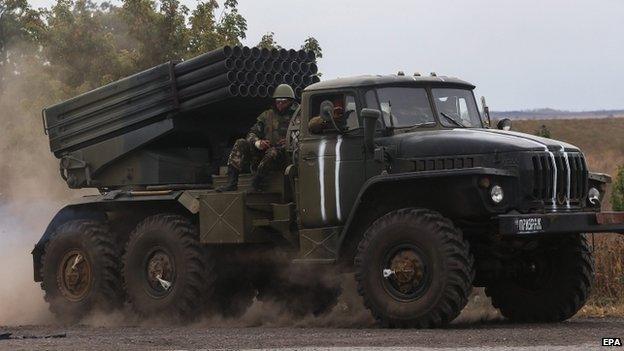
Both sides are required to pull back their heavy guns from the frontline to create a buffer zone
Ukraine's parliament passed a bill last week granting three-year "self-rule" to parts of the Donetsk and Luhansk regions, with elections on 7 December - a decision condemned by some MPs as "capitulation".
In an apparent rejection of the terms of the "special status" law offered by the Kiev parliament, the leaders of the self-declared people's republics of Luhansk and Donetsk said on Tuesday that they would set a preliminary date five weeks earlier, on 2 November.
They both aim to elect a Supreme Soviet (parliament) and their own leaders.
"We do not have an election legislation yet, but we do hope to draft and adopt it by that date," Donetsk's first deputy prime minister Andrey Purgin told Itar-Tass news agency, external.
Under the terms of a nine-point deal agreed at the weekend in Belarus, Ukrainian government and rebel forces have agreed to pull back their big guns 15km (9.5 miles) from the line of engagement, creating a 30km buffer zone.
Rebels in Donetsk began moving their heavy artillery in some areas on Tuesday, according to Donetsk separatist leader Alexander Zakharchenko, "but only in those areas where the Ukrainian regular units have done the same".
Ukraine announced on Monday that it was preparing to move its heavy weaponry, although all other units and their weapons would remain in place.

Minsk memorandum: Key points
To pull heavy weaponry 15km by each side from the line of contact, creating a 30km security zone
To ban offensive operations
To ban flights by combat aircraft over the security zone
To set up an OSCE monitoring mission
To withdraw all foreign mercenaries from the conflict zone

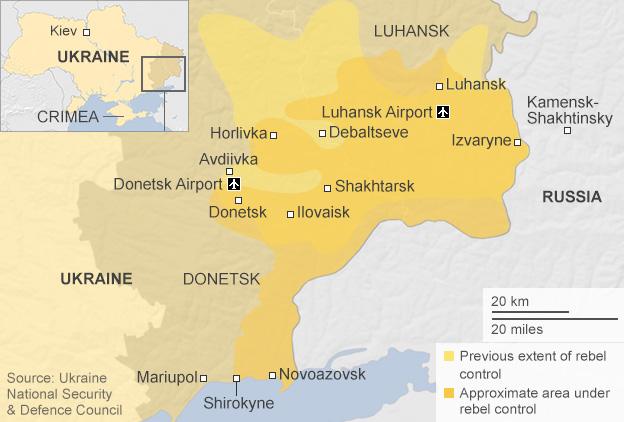
- Published18 September 2014
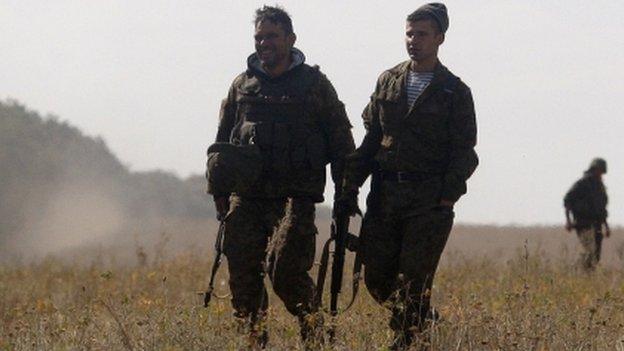
- Published17 September 2014
